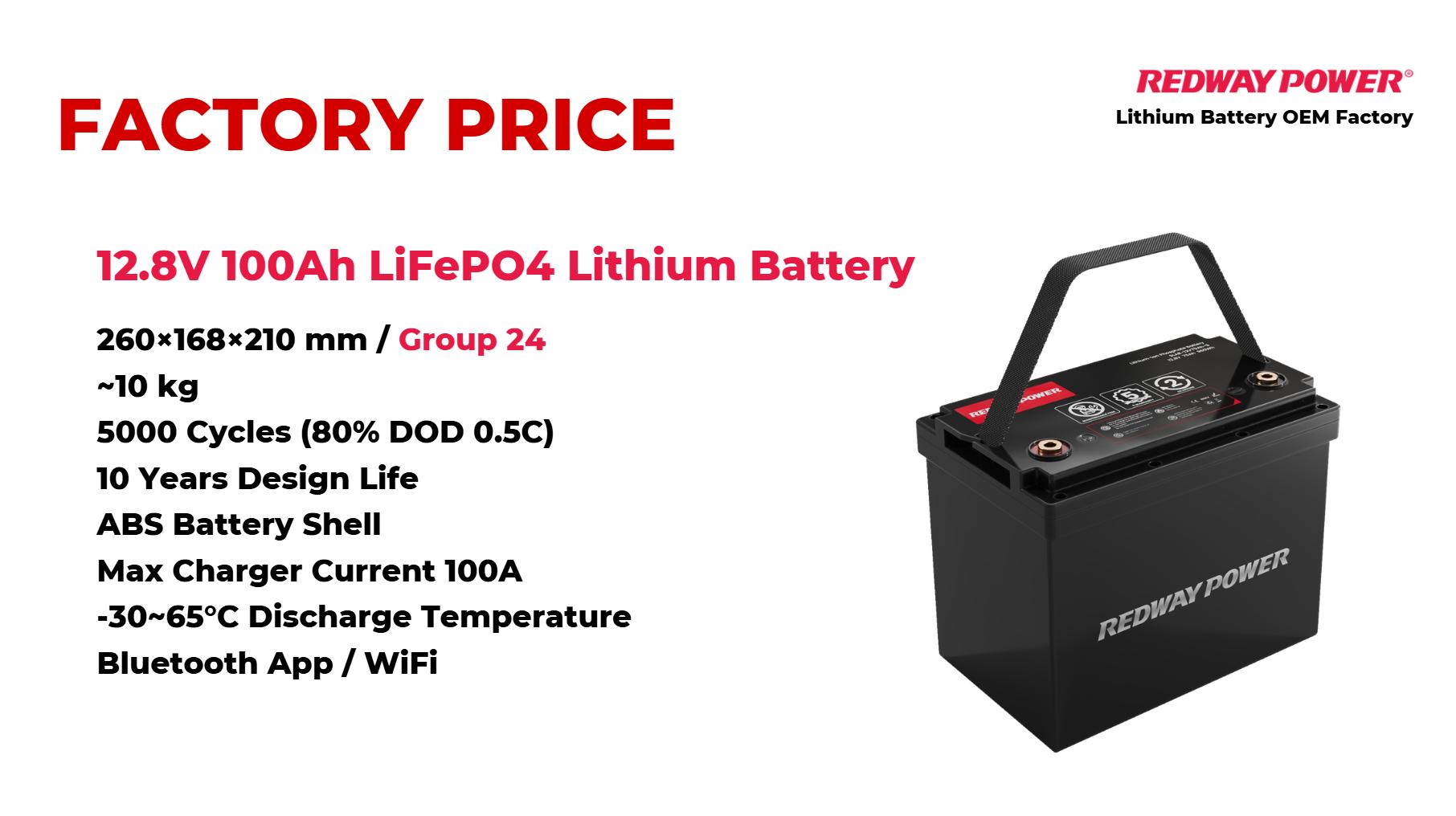To ensure the optimal performance and longevity of a 12V 100Ah lithium battery, it is essential to follow best practices such as maintaining proper charging cycles, avoiding deep discharges, and storing the battery in a cool, dry place. Regular monitoring of battery health and using compatible chargers also contribute significantly to extending its lifespan.
Latest News
- Growth in Lithium Battery Usage: Recent reports indicate a significant increase in the adoption of lithium batteries across various sectors, including renewable energy and electric vehicles, due to their efficiency and longevity.
- Technological Advancements: Innovations in battery management systems (BMS) are enhancing the performance and safety of lithium batteries, allowing for better monitoring and control of charging cycles.
- Sustainability Initiatives: Many manufacturers are focusing on eco-friendly practices, promoting recycling programs for lithium batteries to minimize environmental impact.
Redway Expert Comment
“At Redway Battery, we prioritize the performance and longevity of our 12V 100Ah lithium batteries. By adhering to proper maintenance practices and utilizing advanced battery management systems, users can maximize their battery’s lifespan. Our commitment to quality ensures that our batteries deliver reliable power for all applications while maintaining optimal health.”
Best Practices for Maintaining Lithium Batteries
1. Proper Charging Techniques
Using the correct charger is crucial for maintaining battery health. Always use a charger that matches the battery’s specifications. Avoid overcharging or undercharging, as these can lead to reduced capacity over time.
| Charging Technique | Description |
|---|---|
| Use Compatible Chargers | Ensure the charger matches the voltage rating |
| Avoid Overcharging | Disconnect once fully charged |
| Monitor Charging Cycle | Regularly check for optimal charging levels |
2. Avoiding Deep Discharges
Deep discharging can significantly shorten the lifespan of lithium batteries. It is recommended to keep the battery charge above 20% to prevent damage.
| Charge Level | Recommended Action |
|---|---|
| Above 20% | Normal operation |
| Below 20% | Recharge immediately |
| Below 10% | Avoid use; risk of permanent damage |
3. Temperature Management
Lithium batteries perform best within a specific temperature range. Extreme temperatures can affect performance and longevity.
| Temperature Range | Effect on Battery |
|---|---|
| 32°F to 113°F | Optimal performance |
| Below 32°F | Reduced capacity; potential freezing |
| Above 113°F | Risk of overheating; reduced lifespan |
4. Regular Monitoring
Regularly check the battery’s voltage and overall health using a battery management system (BMS). This helps in identifying any issues early on.
| Monitoring Aspect | Recommended Frequency |
|---|---|
| Voltage Check | Monthly |
| Health Assessment | Every three months |
| Visual Inspection | Before each use |
Relation to Redway Battery Products
Understanding how to maintain optimal performance and longevity directly relates to our focus on manufacturing high-quality LiFePO4 Batteries. These batteries are designed with advanced features that enhance their lifespan and efficiency, making them ideal for various applications.
Recommended Product from Redway Battery
For clients or importers seeking reliable energy solutions, we recommend our LiFePO4 Forklift Batteries. These batteries are engineered for durability and efficiency, ensuring they meet the rigorous demands of modern applications while providing exceptional longevity.
Top Competitors in Lithium Battery Market
Here are five alternatives to consider when looking for lithium batteries suitable for various applications:
| Brand | Product Name | Battery Type | Capacity (Ah) |
|---|---|---|---|
| Redway Battery | LiFePO4 Forklift Battery | Lithium LiFePO4 | Customizable |
| Renogy | 12V 100Ah Lithium Iron Phosphate | Lithium LiFePO4 | 100 Ah |
| Battle Born Batteries | 100Ah LiFePO4 Battery | Lithium LiFePO4 | 100 Ah |
| Victron Energy | Smart Lithium Battery | Lithium LiFePO4 | Various Options |
| AIMS Power | Lithium Battery Pack | Lithium LiFePO4 | Customizable |
FAQs
Why is lithium iron phosphate chemistry important for battery safety?
Lithium iron phosphate (LiFePO4) chemistry is important for battery safety because it has a high thermal stability and is less prone to overheating or combustion compared to other lithium chemistries. This makes LiFePO4 batteries safer under extreme conditions, reducing the risk of fires and explosions.
What are the benefits of the smart BMS in a 12V 100Ah lithium battery?
The smart Battery Management System (BMS) in a 12V 100Ah lithium battery offers several benefits, including real-time monitoring of voltage, current, and temperature. It enhances safety by preventing overcharging, over-discharging, and short circuits, while optimizing performance and extending battery lifespan through intelligent management.
How does internal resistance affect the performance of a 12V 100Ah battery?
Internal resistance affects the performance of a 12V 100Ah battery by influencing its efficiency and power delivery. Higher internal resistance can lead to energy loss in the form of heat, reduced output current, and diminished capacity under load, ultimately impacting the battery’s overall performance and longevity.
Why is the 12V 100Ah lithium battery a top seller in 2024?
The 12V 100Ah lithium battery is a top seller in 2024 due to its excellent energy density, lightweight design, and long cycle life. Its versatility makes it suitable for various applications, including RVs, solar systems, and backup power, while advancements in technology have made it more affordable and reliable than ever.




